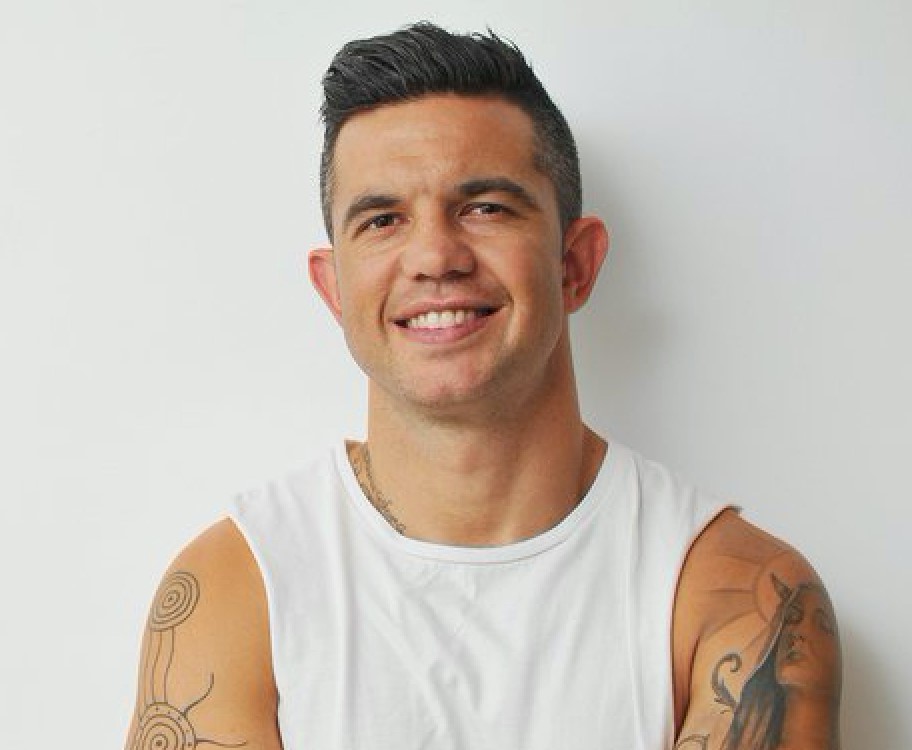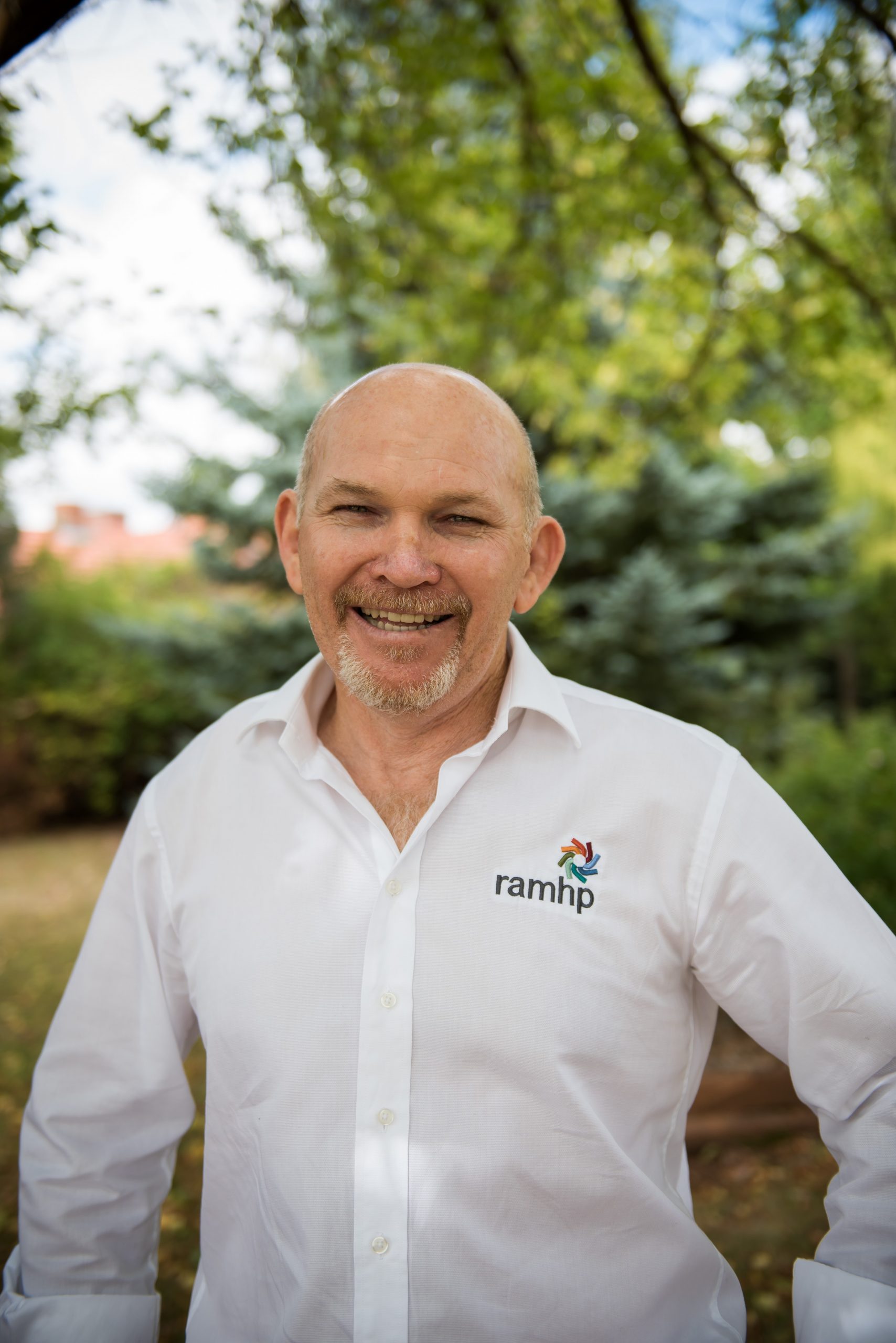In this episode we talk with some members from the Aboriginal community about Social and Emotional Wellbeing. This is a more holistic approach to health that takes into consideration social, emotional and cultural wellbeing of both individuals and the broader community; and we hear why this approach is important.
 Joe Williams is a Wiradjuri, 1st Nations man born in Cowra and raised in Wagga, NSW. Joe has over 15 years experience as a professional sportsperson, playing in the National Rugby League (NRL) for the South Sydney Rabbitohs, Penrith Panthers and Canterbury Bulldogs before switching to professional boxing in 2009. As a boxer, he is a 2 x WBF World Jnr Welterweight champion and also won the WBC Asia Continental Title.
Joe Williams is a Wiradjuri, 1st Nations man born in Cowra and raised in Wagga, NSW. Joe has over 15 years experience as a professional sportsperson, playing in the National Rugby League (NRL) for the South Sydney Rabbitohs, Penrith Panthers and Canterbury Bulldogs before switching to professional boxing in 2009. As a boxer, he is a 2 x WBF World Jnr Welterweight champion and also won the WBC Asia Continental Title.
Although forging a successful professional sporting career, Joe has battled the majority of his life with suicidal ideation and Bipolar Disorder. After a suicide attempt in 2012, he felt his purpose was to help people who struggle with mental illness.
Now Joe travel’s the country speaking about his personal mental health journey in various schools and corporate and community organisations. In 2014 Joe created ‘The Enemy Within’, which is used to show a raw and honest side of Joe, the boxer, former NRL Player, father & fiancé. He speaks about the depths of his private pain, and the dealings with depression that drove him to the very brink. Through customised workshops and youth focused camps, he speaks of adversity, dealing with struggles, resilience, improving your attitude, positive energy and how small steps lead to something greater.
 Darcy Budden is from North West NSW and is a proud Kamilaroi man. He has studied at Charles Sturt University where he acquired a Bachelor of Health Science (Community & Public Health). He has worked in health for 25 years in various roles including mental health, health promotion, Aboriginal Health and health management and he was previously a team member of the Rural Adversity Mental Health Program. Darcy is committed to assisting Aboriginal people and communities to improve health outcomes and access services needed for health care.
Darcy Budden is from North West NSW and is a proud Kamilaroi man. He has studied at Charles Sturt University where he acquired a Bachelor of Health Science (Community & Public Health). He has worked in health for 25 years in various roles including mental health, health promotion, Aboriginal Health and health management and he was previously a team member of the Rural Adversity Mental Health Program. Darcy is committed to assisting Aboriginal people and communities to improve health outcomes and access services needed for health care.
Phil Naden, Chief Executive Officer, Bila Muuji Aboriginal Corporation Health Services.
Bila Muuji, meaning ‘river friends’ was formed in 1995 as a strategic approach by a group of CEO’s to offer support to regional CEO’s in rural and remote NSW. The Aboriginal Medical Services (AMS) CEO’s felt that a regional body could identify and address shared issues impacting the health and social needs of Aboriginal communities and that a unified voice in Western NSW would be strengthened through the development of Bila Muuji.
The Bila Muuji Aboriginal Corporation Health Services Inc. comprises Aboriginal Community Controlled Medical Services from Brewarrina, Bourke, Coomealla, Coonamble, Dubbo, Forbes, Orange and Walgett and are very active in trying to address the health inequality in each of the local communities. The approach is to “provide health services addressing not just the physical wellbeing of the individual but also the social, emotional and cultural wellbeing of the whole community”.
Resources
Beyondblue is an organisation set up to equip everyone in Australia with the knowledge and skills to protect their own mental health. Beyondblue provides people with the confidence to support those around them, and make anxiety, depression and suicide part of everyday conversations.
And as well as tackling stigma, prejudice and discrimination, they break down the barriers that prevent people from speaking up and reaching out.
Beyondblue have a section dedicated to information for Aboriginal and Torres Strait Islander people
https://www.beyondblue.org.au/who-does-it-affect/aboriginal-and-torres-strait-islander-people
Proppa Deadly is a project encouraging Aboriginal and Torres Strait Islander people to take action against depression and anxiety through the telling of their own stories across the First Nations community radio sector. This is in partnership with beyondblue.
Deadly Thinking is a social, emotional wellbeing and suicide prevention program specifically designed for Indigenous communities, confronting core social and mental wellbeing issues in a culturally appropriate, accessible and compelling way.
http://www.rrmh.com.au/programs/deadly-thinking/
Yarn Safe: Yarn Safe was developed in September 2014 with the help of 12 incredible Aboriginal and Torres Strait Islander young people from across Australia, who have continued to be involved in the campaign development.
https://headspace.org.au/yarn-safe/
News: B-Town Warriors are Music to your ears
This story featured in the 2017 Glove box Guide to Mental Health. The hip hop song; People of the Red Sunset by the B-Town Warriors is an uplifting story of empowerment and the need for positive mental health messages.
For the purposes of ensuring a common understanding of Social and Emotional Wellbeing (SEWB), a model that incorporates the following elements has been adopted which views SEWB as an experience and expression of connections to:
- Physical,
- Mental and emotional wellbeing,
- Family,
- Culture,
- Community,
- Land, and
- Spirituality/ancestors. (Copyright: Gee, Dudgeon, Hart, Schultz and Kelly, (2013 in press) on behalf of the Australian Indigenous Psychologists Association (AIPA).)
Help services
If you or someone else is in immediate danger, call 000 or go to your nearest hospital emergency department.
If you’re concerned about your own or someone else’s mental health, you can call the NSW Mental Health Line 1800 011 511 for advice.
Having a tough time and need someone to talk to right now? The following services are here to help. They are confidential and available 24/7.
- Lifeline – 13 11 14
- Men’s Line Australia– 1300 78 99 78
- Kids Help Line – counselling and support provided for young people (to 24 years old) who are feeling depressed, sad, or lonely – or just need someone to talk to – 1800 55 1800
- Domestic Violence Line – 1800 656 463
- Suicide Call Back Service– 1300 659 467
